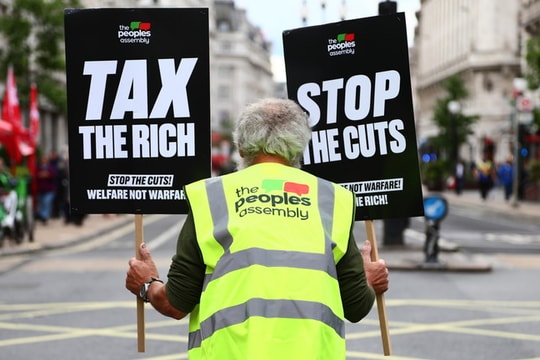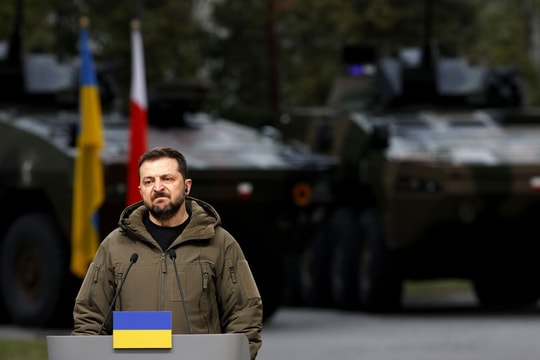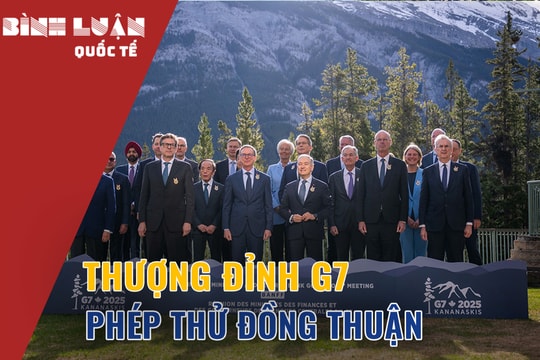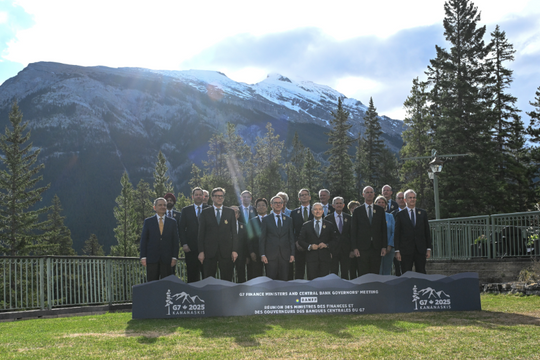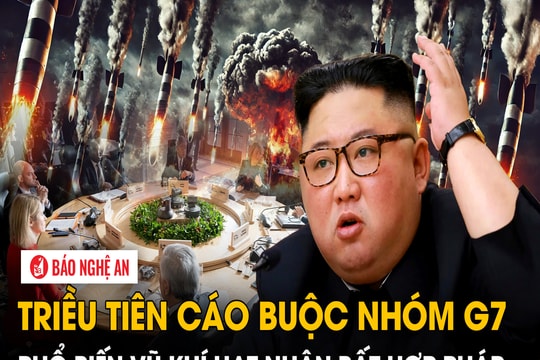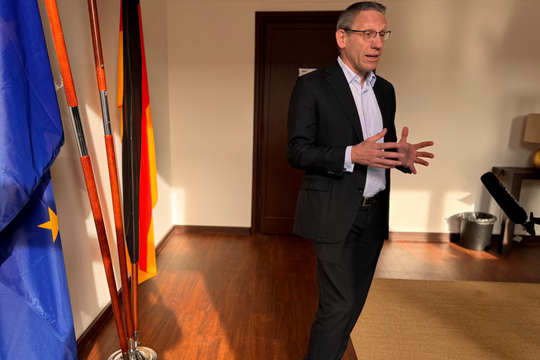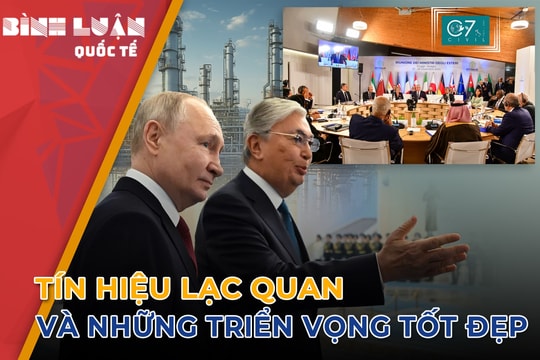The World and Head Shakes
(Baonghean) - The world is not always a stage of consensus, but often a place where subjects steadfastly reject proposals and expectations, for one reason or another.
Obama to Hiroshima: Refusing to apologize
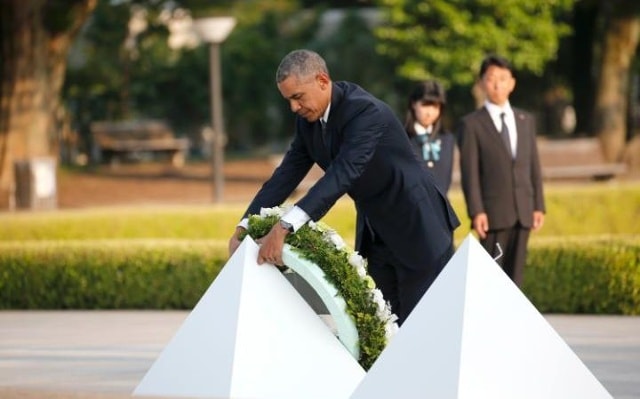 |
| US President Barack Obama lays a wreath at the Peace Memorial Park in Hiroshima, Japan. Photo: AP. |
More than seven decades have passed since the United States dropped the first atomic bomb on the Japanese city of Hiroshima, killing 140,000 people and ushering in an era of nuclear conflict. On May 27, another “first” occurred when Obama became the first sitting US president to visit Hiroshima, walking alongside his Japanese counterpart Shinzo Abe.
The historic visit represents an effort by both Washington and Tokyo to showcase the high-level alliance between the former enemies and resume stalled efforts to eliminate nuclear weapons.
Before the visit, Mr. Obama declared that this was an opportunity to reaffirm his commitment to pursuing peace and security for a world where nuclear weapons were no longer necessary. The US President and the Japanese Prime Minister laid wreaths at the memorial for the victims, sharing the tears of the survivors, but absolutely no apology was uttered.
Over the past time, there has been a lot of controversy surrounding whether Mr. Obama should apologize for the bombing of Hiroshima, or the attack on Nagasaki with a second atomic bomb just 3 days later.
It should be noted that, just before his visit, the 44th President of the United States frankly declared that when he visited Hiroshima, he would commemorate all the victims who died in World War II, but certainly would not apologize for the atomic bombings.
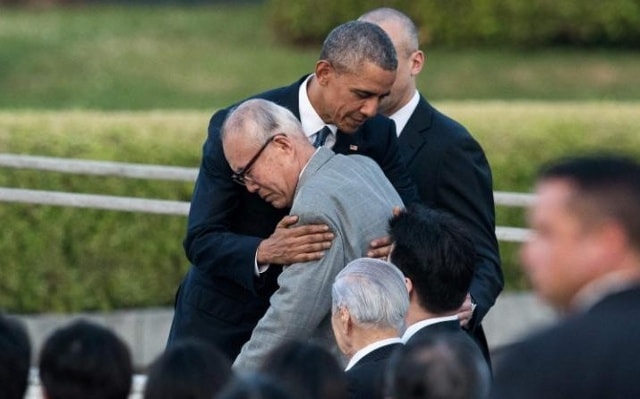 |
| President Obama comforts a survivor of the Hiroshima bombing. Photo: Getty. |
This is not difficult to understand, because most Americans have long considered the two atomic bombs necessary to end the war and save more lives, although this argument is still questioned by many historians and considered unfair by most Japanese.
Moreover, Mr. Obama will not apologize for the decision of his wartime predecessor, Harry Truman, because that would mean breaking a taboo that has been in place for decades in successive US administrations.
Yet, as expected, Mr. Obama still successfully used all his vocabulary to call for joint efforts towards a world without nuclear weapons. These words were first mentioned by the US President in a 2009 speech in Prague, helping him win the Nobel Peace Prize later that year.
Seven years have passed, but the message, or dream, of the American leader has run into the difficult geopolitical reality. Now, once again in Hiroshima, he emphasized: “Our visit to Hiroshima will reaffirm our shared vision of a world without nuclear weapons.”
For many, there remains a big question mark about the long-term effects of Mr. Obama's historic visit to the city that suffered 71 years ago, especially when his presidential term is also falling into the countdown orbit waiting for the end in January next year.
Many Japanese expressed satisfaction with Obama’s visit, even though they did not receive an apology for the past, but they could not help but wonder whether his legacy would be continued by the next American leader. What they want is for the candidate who wins the prestigious seat in the White House to continue his predecessor’s attitude on the issue of global nuclear disarmament.
WHO says “no” to changing Olympic venues
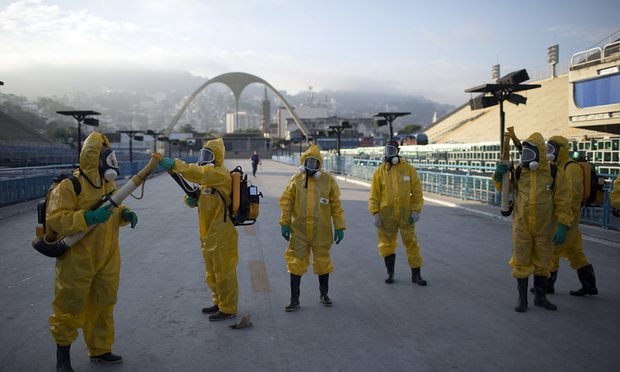 |
| Health workers prepare to spray insecticide at the Sambadrome in Rio, Brazil. Photo: AP. |
Zika is a threat to not only any country in the world, especially when this evil virus is believed to be related to "microcephaly" - a congenital condition that causes the child's head to develop abnormally, potentially leading to many serious problems for future generations.
Brazil is now considered the largest “hotbed” of the disease, with 1,300 cases of newborns suffering from this disease recorded last year. In addition to the persistent headaches caused by recession and political turmoil, the South American country is now under additional pressure when 150 health experts have called for the postponement or relocation of the Olympics instead of taking place in Rio de Janeiro as planned due to concerns that it could cause the disease to flare up and spread rapidly.
The experts' views are not without basis, because no one can predict that the wave of athletes and fans coming here from all over will avoid the risk of being infected with the parasitic virus on mosquitoes and bringing the disease back home.
In the request letter, researchers and experts even questioned whether the World Health Organization (WHO) did not want to propose postponing or changing the location of the Olympics because of a conflict of interest between the organization and the International Olympic Committee (IOC).
 |
| Several athletes have said they will consider postponing their trip to Brazil ahead of the Rio Olympics because of the Zika virus. Photo: PA. |
Responding to these requests, the WHO on May 28 rejected the proposal of 150 leading scientists, asserting that the Olympics would “not significantly alter” the spread of the Zika virus. The organization based its view on the current assessment of the spread of the Zika virus in nearly 60 countries worldwide and 39 countries in the Americas and asserted that “there is no medically justified reason to postpone or cancel the sporting event,” while suggesting that the best way to reduce the risk of infection is to follow health sector travel recommendations.
In all fairness, the experts’ proposal is a necessary precaution in the context of the WHO being forced to declare a global emergency due to the outbreak and rapid spread of the disease originating from Brazil. With the current speed and intensity of the spread, it is believed that the possibility of Zika “appearing” in Africa is only a matter of time.
However, it must be admitted that it is difficult to respond to the above call, because when the opening day of the Olympics is so close, moving the venue or canceling the task is almost impossible. And if there is no time to do anything else, the WHO and the IOC must carefully consider, in order to balance organizing the world-class sporting event as planned, with suppressing the risks to public health, focusing not only on the health of the athletes but also the safety of those who are cherishing plans to go to Rio with the looming spectre of Zika.
Thu Giang
| RELATED NEWS |
|---|

